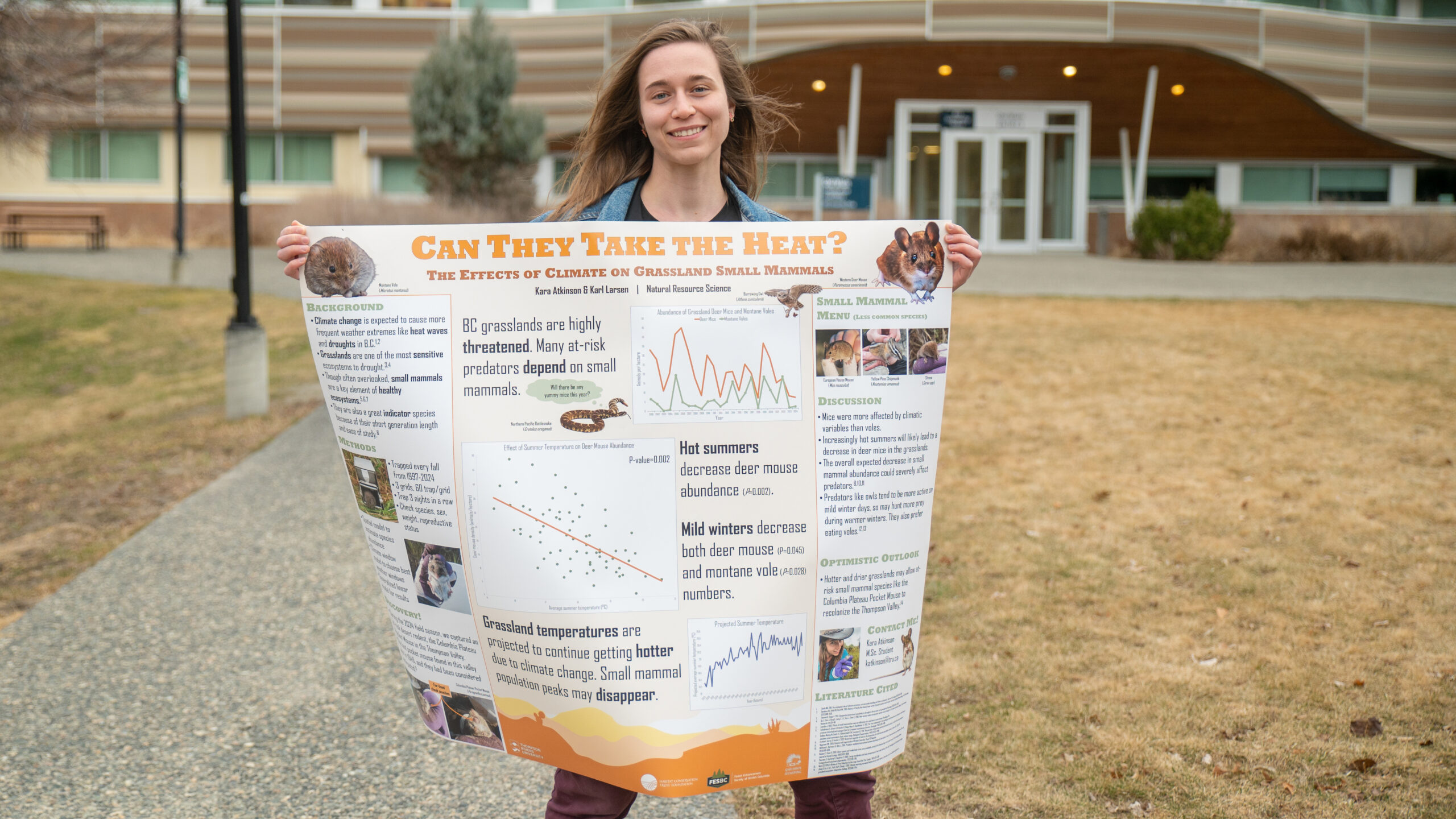In early March, the Terrace Room at Thompson Rivers University served as the venue for a lively event as students, faculty and community gathered for the 2025 Master of Science showcase—TRU’s flagship event for the Master of Science Environmental Science program. Among the standout presenters were Chloe MacLean and Kara Atkinson, who were recognized as this year’s winners for their research.
MacLean’s research focuses on microbial communities in permafrost—frozen earth materials that have remained solid for at least two consecutive years. These communities are being disrupted by climate change, potentially accelerating the release of greenhouse gases.
“So the core focus of my research is trying to understand changes in the microbial community structure and function in the permafrost in the Canadian High Arctic,” MacLean said. “Permafrost is earth material that is frozen for 2 consecutive years. It is really important we understand how the microbial communities in the permafrost will change. Permafrost is a source of carbon in terms of climate change.”
Beyond the lab, MacLean’s passion for climate science started early, leading her to the remote Arctic community of Iqaluktuuttiaq (Cambridge Bay) in Nunavut. “Since I was a little girl, I [have] always [been] interested in climate change and doing my part to mitigate [it],” MacLean said. “I got to work with the Inuit community in Cambridge Bay, which is in Nunavut. In their language, Cambridge Bay is called lqaluktuuttiaa, which means, Good Fishing place.”
Among her proudest moments was retrieving her first permafrost core: “I just remember feeling excited and proud when it came from the ground. It showed determination, hard work and not giving up. I knew that core would be used to conduct my research, which is really important.”
For Atkinson, a childhood dream of working with animals shaped her early path. “When I was a kid, I always wanted to be a researcher, but I didn’t know anybody in [research]. I went to vet school and had to drop out because it was expensive. By then, I’d made a bunch of friends in graduate school and realized that there are actual jobs and there is a place for me to do what I love doing.”
Atkinson’s research investigates how climate variables—like hot summers and cold winters—affect small mammal populations in B.C. grasslands, a critical ecosystem under threat. Atkinson works with a 27-year dataset, trapping and tracking mammals like deer mice.
“What l found out was that hot summers and cold winters led to a decrease in small mammal populations. When we look at the prey in the area, we can expect those to go down.”
Atkinson shared her excitement about a rare find: a species of pocket mouse previously unrecorded in the Thompson Valley. “It was last seen in Canada near the U.S. border in Osoyoos back in 1949,” Atkinson said.
“When I study small mammal animals, I have this data set of 8-10 species… They are tied to all of the animals in the ecosystem… all the predators like rattlesnakes and coyotes from all these different groups, these are their main food sources,” Atkinson said.
Both researchers hope to continue contributing to science in meaningful ways. MacLean is especially passionate about working alongside Northern communities to support climate resilience, while Atkinson envisions using long-term data to inform conservation strategies.
Their journeys—filled with fieldwork, muddy boots, and determination—reflect the core spirit of the showcase: curiosity, community and environmental stewardship.
While the applause has quieted, their impact is only beginning.
More information about the MSc showcase can be found here.

